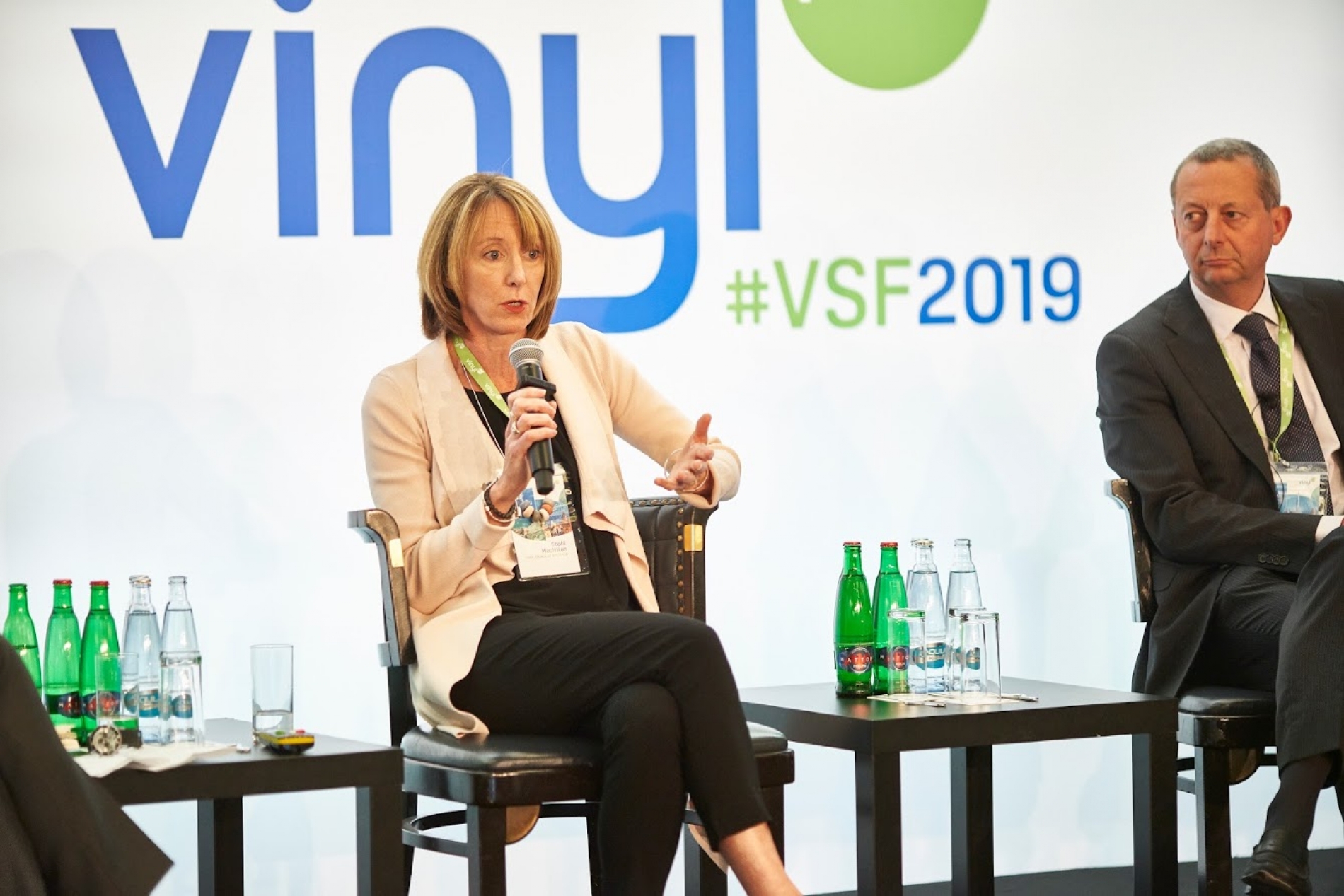Global vinyl industry partnerships are driving progress in the sustainability of the Australian PVC industry, resulting in the creation of successful initiatives such as best practice manufacturing, product stewardship and recycling.
Sophi MacMillan, Chief Executive of the Vinyl Council of Australia and a member of the Global Vinyl Council, believes that partnership is ‘absolutely integral to the work that we do as an association focused on sustainable development of the industry’.
During a panel discussion at the recent VinylPlus Sustainability Forum 2019 held in Prague, Czech Republic, Sophi emphasised the importance of partnerships for sharing knowledge, experience and strategies with experts from all the regions of the vinyl world.
“Attending the Global Vinyl Council meeting and the European Vinyl Sustainability Forum provides a great opportunity to build connections across the industry beyond Australia and our region. For the Australian vinyl industry, which is a small market, partnerships have been essential to us to move forward, to be able to tap into the knowledge of people, particularly in Europe and the US.
“It’s these connections that help us to develop our voluntary, industry PVC Stewardship Program and our initiatives around recycling, as well as sharing ideas and best practice.”
The Vinyl Sustainability Forum, organised by VinylPlus, the voluntary sustainable development commitment of the European PVC industry, attracted more than 170 participants from 32 countries to share further progress towards advancing the sustainability of the industry and its products.
Sophi continued: “Europe’s VinylPlus program is a leader in striving towards sustainable goals across the whole vinyl industry supply chain. Here at the Vinyl Council of Australia we follow in their footsteps with our own PVC Stewardship Program that has driven continual improvement in the vinyl industry for 17 years. We see stewardship as being a shared responsibility, so it is about working with, not just industry members, but also stakeholders - particularly government and NGOs - and trying to establish constructive partnerships.
“It’s about being aware of different epistemologies – different ways of knowing – which can help us to remove blinkers, to understand and characterise issues and develop paths to address them.”
Nowhere is this more important than in addressing the need for the industry to engage in the circular economy. Sophi highlighted their successful PVC Recycling in Hospitals Program, which now has 175 hospitals across Australia and New Zealand participating in the collection of PVC medical products for recycling back into new products, and through collaboration, is being implemented in other countries such as South Africa, the UK and Thailand.
In Australia, partnering with medical devices manufacturer Baxter Healthcare, PVC recyclers, medical waste collection companies, state governments and health authorities has been essential to developing and successfully delivering the program.
Sophi added: “Collaboration with the nurses and midwives’ union has also been very helpful in terms of finding pathways to engage nursing staff and to develop training on which medical products are recyclable under the program.”
A further example was given of the Council’s partnerships with academia such as Monash University and manufacturers in the development of product concepts for vinyl recyclate.
The Vinyl Council would like to see such wider collaboration form between stakeholders, particularly end-user brands, in the broader plastics packaging space.
“By working together, we have more knowledge, more ideas and are better equipped to find solutions to seemingly intractable problems.”







